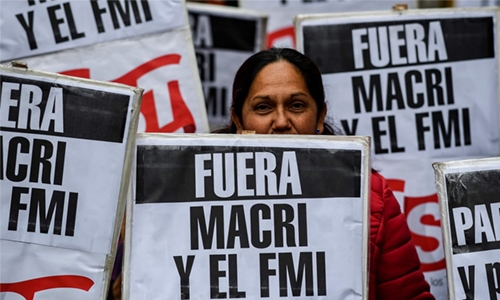Argentina imposes exchange controls to calm markets
The government of President Mauricio Macri yesterday imposed foreign-exchange controls on Argentine exporters at the end of a week of financial uncertainty that saw a sharp drop in the value of the peso. Exporters were ordered to seek permission from the Central Bank of Argentina before purchasing foreign currency, according to a decree published in the Official Bulletin. In other measures, transferring money abroad will now require government permission.
And individuals seeking to buy dollars now face a monthly limit of 10,000 greenbacks. But there are no restrictions on people withdrawing dollars from their bank accounts -- a practice known here as the “corralito,” applied in late 2001 and the spark for the worst economic and political crisis in Argentine history.
All these new measures will be in place until December 31. Last month, markets were rattled when pro-business Macri suffered a huge setback in primary elections, and his leftist opponent in October presidential elections Alberto Fernandez emerged as the favorite.
The decree published Sunday said the currency measures were needed temporarily to “regulate more intensely the currency exchange regime and strengthen the normal functioning of the economy.” Argentina has been in recession since 2018, and is battling rising unemployment and one of the world’s highest inflation rates, running at more than 55 percent.
Related Posts

